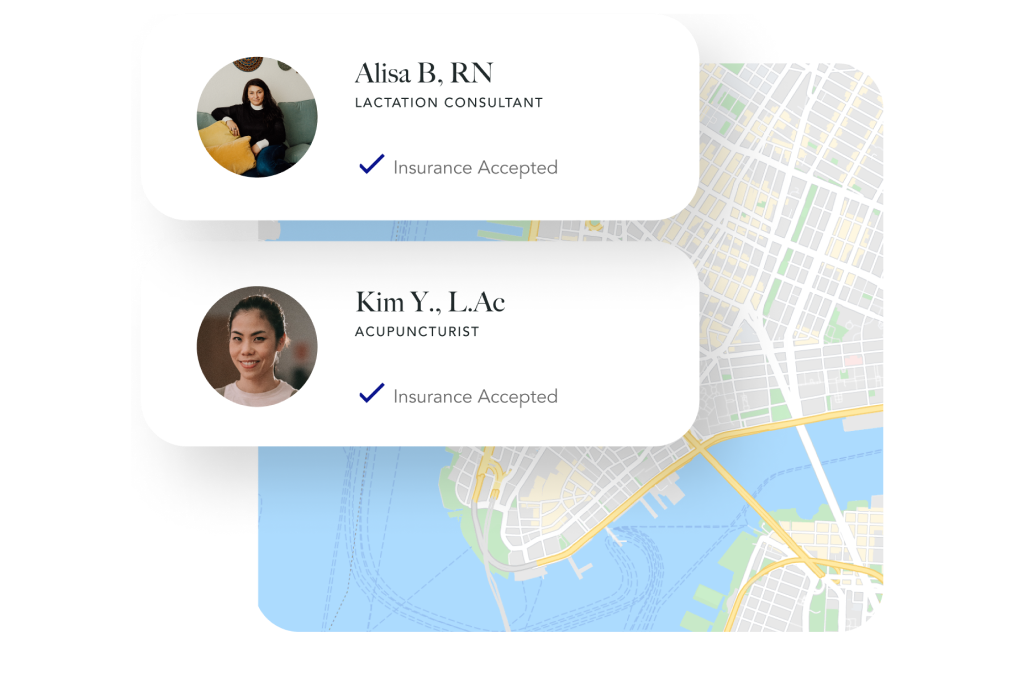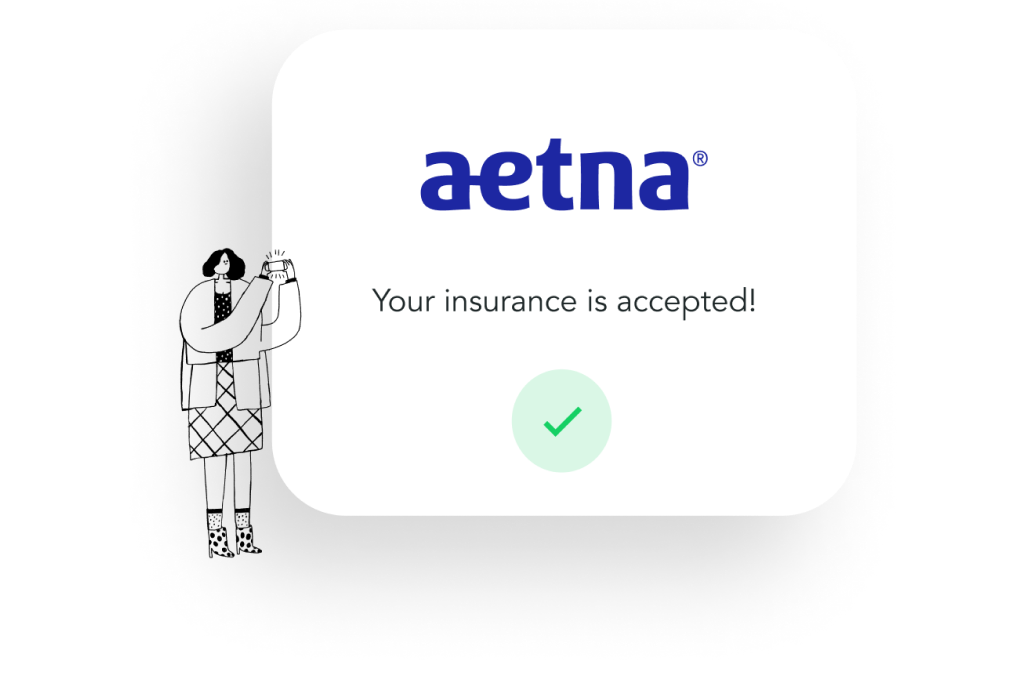
Our Specialties
Find Keto Dietitians & Nutritionists Near Me
90% of Zaya patients pay $0 for one-on-one nutrition counseling with a registered dietitian.
Find A Keto Dietitian & Nutritionist Near MeBrowse our directory of keto nutritionists & registered dietitians and book your visit online using your insurance.

Find the right care for you.

Pay with your insurance.

Book your visit online.
Get a provider who gets you.
Our providers are nutrition experts and take the time to get to know you and your needs.
Real talk from real patients.
Have questions? We’ve got answers.
For more information about how Zaya works, check out our frequently asked questions.
View FAQsMore about our keto nutritionists & registered dietitians
Insurance accepted by our keto nutritionists & registered dietitians
Many people come to us wondering if dietitian and nutritionist visits are covered by insurance. The good news is that 90% of Zaya patients pay $0 for one-on-one nutrition counseling with a registered dietitian through Zaya. Our registered dietitians may accept the following types of insurance:
- Aetna (See Aetna Nutritionists & Dietitians)
- Anthem Blue Cross Blue Shield (See Anthem Blue Cross Blue Shield Nutritionists & Dietitians)
- Centivo (See Centivo Nutritionists & Dietitians)
- Cigna (See Cigna Nutritionists & Dietitians)
- Empire Blue Cross Blue Shield (See Empire Blue Cross Blue Shield Nutritionists & Dietitians)
- Oxford Freedom (See Oxford Freedom Nutritionists & Dietitians)
- United Healthcare (See United Healthcare Nutritionists & Dietitians)
How you can pay for visits with a Zaya Care dietitian
All registered dietitians in Zaya Care’s network accept insurance. 90% of Zaya patients pay $0 for one-on-one nutrition counseling with a board-certified expert registered dietitian.
Before your first session, we’ll check your insurance and communicate any costs with you ahead of your first appointment so there are no surprises.
You can either book an appointment online here or give us a call at (646) 443-6113 to get started.
Visit types offered by our network of nutritionists
The following visit types are available for patients of our keto nutritionists include:
- Video Visit (Find online nutritionists & dietitians near you)
- Home Visit
- Office Visit
Languages spoken by our network of dietitians
Our nutritionists and dietitians may speak the following languages:
- English
- Spanish
- French
- Hebrew
- Arabic
How to book an appointment with one of our registered dietitians
If you’re interested in working with a Zaya Care dietitian, you can follow these steps:
- Click this link to view our directory of registered dietitians & nutritionists who specialize in the keto diet.
- Filter the results by other things like visit type, distance, and language spoken.
- Browse through providers and find one that fits your needs.
- Schedule your appointment for a time that works for you by filling out your insurance, visit type, and desired date/time of your appointment.
- Click Continue Booking.
- Create a Zaya Care account to complete your booking.
How keto dietitians & nutritionists can help you
Keto is a diet that requires lifestyle changes including many food restrictions that may be new to you. It can be a difficult diet to do on your own. A dietitian who specializes in keto can teach you how to implement this diet correctly, monitor how it is affecting your body, and help you stick with it long enough to see your desired results.
A keto dietitian can help you:
- Personalize the amount of protein and carbs you eat based on your activity level
- Choose healthy fats like olive oil, avocadoes, nuts, and salmon over unhealthy ones like bacon, butter, and cream
- Choose healthier carbs like complex carbs over simple carbs loaded with sugar
- Monitor ketone levels in your body
- Monitor your energy levels and adjust your diet accordingly
- Incorporate physical activity into your plan
- Make sure you’re meeting your nutritional needs even while restricting certain foods
- Decide if you need supplements to offset nutrients missing because of food restrictions
- Choose foods you like that still meet the requirements of the diet
- Choose foods that make you feel full longer
- Make sure you are staying hydrated
- Make sure you’re addressing health conditions like diabetes and PCOS properly
- Track your progress and stick with it
How the keto diet can help with weight loss
The keto diet can help you lose weight through a process called ketosis. Ketosis is when your body burns fat for energy instead of glucose or carbohydrates. The word “keto” is short for ketogenic and refers to ketones. Ketones are small molecules given off as part of fat metabolism. Ketones are made by the liver when you don’t eat carbs.
When you eat a diet high in fat and moderate in protein but very low in carbs, it forces your body to use ketones for fuel. In this state of ketosis, fat becomes the body’s main source of energy, leading to fat loss.
This process also reduces insulin levels. High insulin levels lead to weight gain and difficulty losing weight. Once you reduce insulin levels by avoiding carbs, you have reduced fat deposition. This also promotes liver metabolism of fats instead of fat storage.
Another effect of the keto diet is appetite reduction. Eating a diet high in fat and protein can make you feel full longer and help you reduce how much food you eat overall.
The result is lower body fat and weight and improved energy in some individuals.
Risks of the keto diet
The keto diet is generally considered safe for the short term except for those who have insulin dependence, liver failure, pancreatitis, or enzyme deficiencies affecting their ability to metabolize fats.
Even if the diet is safe for you during the short term, there are side effects to expect and the potential for long-term complications:
- “Keto Flu.” Many who begin the keto diet will experience adjustment-related symptoms commonly known as the “keto flu.” These symptoms include poor exercise tolerance, fatigue, dizziness, and headache. These can take days to weeks to resolve.
- Nutrient deficiencies. The foods commonly used in the keto diet are high-fat and no-carbohydrate foods. This means that you may miss out on the nutrients found in vegetables, grains, and fruits. You may need a nutrient supplement like a whole-food vitamin to improve your nutrient intake.
- Digestive disturbances. Nausea and vomiting or constipation may be seen as part of the keto flu and will be temporary as your body adjusts. Fats, however, slow the digestive system so that your stomach may empty too slowly to be comfortable. Bloating or heartburn after meals can be long-lasting in some individuals. Others may have persistent constipation from poor fiber intake. Your gut microbiome feeds off fiber; when you are missing this food, you could develop inflammation and irritable bowel syndrome symptoms. You may need a fiber supplement to offset this problem.
- Bone health dysfunction. The keto diet does not necessarily lead to osteoporosis, but the higher levels of ketone bodies mean that calcium can be lost from your bones over time. If you also don’t consume much vitamin D, your bones can become more brittle. You may partially offset the vitamin D reduction by boosting your intake of this vitamin in a supplement.
- Heart health issues. Most of the time, keto diets promote better heart health by reducing weight and lessening inflammation. Some individuals, however, may develop an elevation in their LDL cholesterol levels which will increase the risk of heart disease. You will need to check with your doctor before or while doing this diet to see if you have such a risk.
- Kidney stones. Kidney stones are common complications of keto diets. The best solution is to remain hydrated, avoid salt, and reduce animal protein intake. Acidic blood and urine from the keto diet cannot be avoided; however, reducing vitamin C intake to therapeutic levels (no supplements) can help.
- Kidney disease. The keto diet is hard on your kidneys in several ways. In those who have marginal kidney function already, the gradual decline in kidney function with age can become accelerated, leading to advanced chronic kidney disease.
Nutrition resources from Zaya Care
- Is the Keto Diet Good for PCOS?
- Is the Keto Diet Safe While Pregnant?
- PCOS Diet: Meal Plan & Foods to Avoid
- GERD Diet: Foods to Eat & Avoid for Acid Reflux & Heartburn
- Crohn’s Disease Diet Plan
- Ulcerative Colitis Diet Plan
- Microscopic Colitis Diet (Lymphocytic & Collagenous)
- POTS Diet Plan
- AIP Diet
- GERD Diet: Best Foods for Acid Reflux & Heartburn
- Best Foods for Gut Health
- Best Foods to Eat While Pregnant
- Postpartum Diet: Best Foods to Eat After Giving Birth
- Foods That Balance Hormones
- Are Dietitians & Nutritionists Covered by Insurance?
- How Does a Dietitian Help Patients?
>> Search Keto nutritionists & registered dietitians near you




